Employers and their employees should be aware of recent amendments to workplace laws which from mid-September will change the way employers and employees respond to sexual harassment and sex-based harassment in the workplace and allow longer timeframes and broader scope for lodging complaints.
On 2 September 2021, Federal parliament passed new laws designed to promote gender equality and better protect employees from sexual harassment and sex-based discrimination in the workplace. The amendments were proposed in response to recommended changes to workplace laws suggested by Sex Discrimination Commissioner Kate Jenkins in her 2020 report, Respect@Work: National Inquiry into Sexual Harassment in Australian Workplaces (2020 Report). The Sex Discrimination and Fair Work (Respect at Work) Amendment Bill 2021 (Cth) (the Bill) has been criticised for only implementing some of the 55 recommendations in the 2020 Report. Nonetheless, the Bill introduces a number of significant changes to workplace laws. The amendments are expected to become law from mid-September. Employers should be aware in particular of the key changes which:
- extend the scope and application of prohibitions under the Sex Discrimination Act 1984 (Cth) (SDA), including to those who assist or allow sexual harassment or harassment on the ground of sex (sex-based harassment);
- provide a longer (two year) timeframe for employees to lodge complaints on the basis of discrimination within the meaning of the SDA;
- empower employers to terminate the employment of employees who engage in sexual harassment in the workplace by making this a valid reason for dismissal under s 387(a) of the Fair Work Act 2009 (Cth) (FWA);
- empower the Fair Work Commission (FWC) to issue “stop sexual harassment orders”; and
- amend the FWA to provide for paid compassionate leave where the employee or employee’s current spouse or de facto partner experiences a miscarriage.
Amendments to the Sex Discrimination and Fair Work acts
The laws amend the FWA to better protect against sexual harassment and harassment on the basis of sex by:
- clarifying that the FWC can issue stop sexual harassment orders under the anti-bullying jurisdiction in the FWA. These restorative orders will only be available where there is a risk of sexual harassment occurring again (note that this amendment will only apply two months after the passing of the Bill); and
- establishing that employees may validly be dismissed for sexually harassing another person when they do so in connection with their employment.
The laws amend the SDA to better protect against sexual harassment and harassment on the basis of sex by:
- adding a definition for “harassment on the ground of sex” and amending various prohibitions to include not just sexual harassment but also sex-based harassment;
- clarifying that the objects of the SDA include an object of achieving equality of opportunity between men and women, insofar as this is practicable;
- adopting language of “worker” and “person conducting a business or undertaking” to protect all workers, including paid and unpaid workers, individuals working from home and the self-employed;
- extending the application of the SDA to include members of parliament, their staff and judges at all levels of government;
- removing the exemption for state public servants in the SDA;
- clarifying that victimisation can form the basis of a civil action for unlawful discrimination and not just a criminal complaint; and
- extending the prohibition on sexual harassment and harassment on the grounds of sex to include those who cause, instruct, induce, aid or permit somebody to engage in sexual harassment or sex-based harassment.
A further important change involves an amendment to the Australian Human Rights Commission Act 1986 (Cth) (AHCRA). Complainants to the Australian Human Rights Commission (Commission) now have an additional 18 months to lodge a complaint relating to the SDA before the application can be dismissed by the President on discretionary grounds. Previously the President of the Commission could dismiss complaints made more than 6 months after the alleged acts, omissions or practices took place. Now this discretion to dismiss may only be exercised if the complaint is lodged 24 months after the relevant events took place (where the complaint relates to conduct dealt with under the SDA). Complaints that do not relate to conduct dealt with under the SDA they may still be dismissed after 6 months.
As mentioned above, the Bill also adds a definition to the SDA to take into account sex-based harassment. Previously the SDA defined sexual harassment to involve an unwelcome sexual advance or unwelcome requests for sexual favours or engagement in other unwelcome conduct of a sexual nature. This definition remains, but a definition is added to take into account harassment on the ground of sex. Harassment on the ground of sex is now defined in the SDA to involve unwelcome conduct of a seriously demeaning nature in relation to the person harassed that is carried out by reason of the sex of the person harassed or a characteristic generally appertaining or imputed to a person of the same sex as that person. The prohibitions that already existed under the SDA for sexual harassment are extended to include harassment on the ground of sex.
Criticism that changes are insufficient
The Bill has been criticised for not implementing all of the relevant recommendations within the 2020 Report. One of the major criticisms is that no cost protection has been provided for complainants. This may discourage some potential complaints from lodging complaints, as this can be a costly and difficult process.
In response to the passing of the Bill, the Commission commented that it welcomed the passage of the Bill, which contains “important and necessary reforms to address sexual harassment in Australian workplaces”.[1] It noted that the Bill addresses 6 of 12 recommendations for legal reform at the federal level in whole or in part, and that the Commission looks forward to continuing to work with the government to address the remaining legislative reforms.
Other recommended legislative reforms which were not addressed include:
- amending the definition of “serious misconduct” in the Fair Work Regulations to include sexual harassment;
- amending the SDA to introduce a positive duty on all employers to take reasonable and proportionate steps to eliminate (as far as possible) sex discrimination, sexual harassment and victimisation;
- amending the SDA to include an express prohibition on “creating or facilitating an intimidating, hostile, humiliating or offensive environment on the basis of sex”;
- amending the AHRCA to provide a broad inquiry function to the Commission to inquire into systemic unlawful discrimination, including systemic sexual harassment; and
- amending the AHRCA to allow unions and other representative groups to bring representative claims to court.
How should employers respond to the amendments?
Employers should ensure that they and their employees are aware of the changes, including that the laws apply to persons who assist or allow a person to sexually harass another person and that employees can be dismissed for engaging in sexual harassment (as long as the dismissal is not otherwise harsh, unjust or unreasonable).
Employers should be prepared for the possibility that in response to the new laws, new complaints of sexual harassment or sex-based harassment may be lodged with the Commission against employers. Some of these may be complaints that previously would have been unlikely to succeed due to the time taken to submit the application or the lack of coverage of the specific behaviour under the SDA. Employers should also be ready to respond to applications for stop sexual harassment orders.
To prevent these issues arising and to create a safe workplace, employers should ensure that their staff do not engage in conduct that falls within the meaning of sexual harassment or sex-based harassment. We recommend that employers ensure that they have up-to-date policies on sexual harassment and that they strongly consider workplace training and education for their staff, which also reduces the legal risk and exposure of the business. By complying with the law, protecting their employees from harassment and creating an environment in which employees feel comfortable to raise issues directly with the employer, employers should reduce the likelihood of their employees lodging a sex-based complaint against them or seeking a stop sexual harassment order from the FWC.
Employers should also be prepared for the possibility of further amendments in the future which may be made to implement the remaining recommendations of the 2020 Report.
PH Solicitor understands these developments may be confusing for employers. If you would like to discuss your business’ rights in light of these new laws, we are here to help. Call our office on (03) 9642 0435 or email admin@phsolicitor.com.au for a confidential discussion with our team.
[1] https://humanrights.gov.au/about/news/statement-passage-sex-discrimination-and-fair-work-respect-work-amendment-bill-2021
This information is general only and is not to be taken as legal advice with respect to your specific circumstances. Should you require advice specific to your circumstances, please contact the team at PH Solicitor at admin@phsolicitor.com.au or by phone on (03) 9642 0435.


